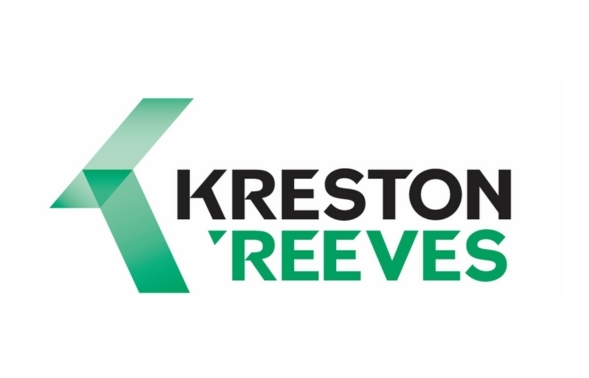
2021 Spring Budget Predictions
The Chancellor will present the much-anticipated 2021 Budget on Wednesday 3 March 2021.
In 2020 the UK suffered its worst economic slump since the Great Frost of 1709, contracting by 9.9% and narrowly avoiding a double dip recession. The UK economy has faced many challenges over the years, but nothing on this scale in living memory. Last month UK borrowing reached £8.8bn, the highest January figure since records began. This means the national debt now stands at a staggering £2.11 trillion.
With the success of the vaccine rollout and gradual easing of lockdown restrictions, we hope to see a spring back in the economy this year due to pent-up consumer demand. However, the road ahead may be bumpy, and the decisions made on 3 March are likely to be far-reaching with long-term consequences.
We provide our predictions for what we think may be announced in the 2021 Budget.

Domestic Reverse Charge goes live on 1 March
After being delayed twice, the new VAT Domestic Reverse Charge (DRC) goes live on 1 March. It is the most significant change to VAT in construction services in 30 years.
From that date, sub-contractors in a Construction Industry Services (CIS) chain of supply will cease to collect VAT from other contractors. In its place a reverse charge system will apply. This makes the buyer of the sub-contractor's service liable for VAT accounting in place of the supplier.
The scope of the new legislation is wide and based on the definition of "construction operations" for CIS purposes. It encompasses construction services and associated goods supplied by contractors working on the construction, alteration, repair, extension or demolition of buildings and civil engineering works.
Read about the practical implications of the DRC

How does the VAT deferral scheme work?
HMRC have published further guidance on how businesses can repay the VAT they deferred last Spring due to COVID-19.
Businesses have a number of options for deferred VAT:
- Pay the deferred VAT in full, on or before 31 March 2021
- Join the VAT deferral new payment scheme - the online service is open between 23 February and 21 June 2021.
- Contact HMRC on Telephone: 0800 024 1222 by 30 June if extra help is needed
You may face a penalty or charged interest if you do not action one of the above options.
Find out how to join the scheme

Year End Tax Planning Guide 2020/21
Essential tax planning guide for individuals, corporates and SMEs
Our national tax team have worked together to create a handy Year End Tax Planning Guide, which is available for you to download!
As we approach the end of the tax year, now is the time to review your tax affairs to ensure that you have taken advantage of all reliefs available to you and have considered some planning opportunities to help reduce your tax bill.
If you have any questions about any of the topics raised in the guide or if you would like some advice about your year end tax planning, please get in touch with a member of our tax team.

Real Estate Matters: The latest issue
We work together with our colleagues across our accountancy association MHA to provide a national outlook on the issues facing the construction market.
Since the release of our Construction Sector Report in Autumn 2020, we've had two more national lockdowns, extended government support, and a Brexit deal negotiated and delivered. While there is an air of familiarity as we yet again adapt to these changes, the promising vaccination numbers in the UK and recent roadmap to easing restrictions provide a much-needed light at the end of the tunnel.
This edition focuses on:
- Latest construction news
- VAT Domestic Reverse Charge
- Importing building materials post-Brexit
- Sustainability opportunities for the sector
House price growth

Proposed new taxes for real estate developers
The tragic Grenfell Tower fire that claimed 72 lives in June 2017 brought to the fore the use of flammable cladding on high-rise buildings, which is said to have contributed to the rapid spread of the blaze.
In December 2018 the government introduced an amendment to the Building Regulations which prohibited the use of 'combustible cladding' in high-rise buildings over 18m.
The Government has since announced an additional £3.5bn investment (£5bn in total) towards removing dangerous cladding from blocks taller than 18m. For lower-rise buildings between 11m and 18m, leaseholders are to be offered a new long-term, low-interest loan scheme for cladding removal.
In addition, the Housing Secretary Robert Jenrick has unveiled plans to introduce two new taxes on the real estate development sector.

Legal Sector Survey Results
In May 2020 and December 2020, the MHA Professional Practices team ran two separate surveys looking at the impact of COVID-19 on the legal sector and how it has influenced future plans.
We have analysed and compared the results of the two surveys and developed four easy-to-read infographics which go into detail about the key statistics and what it means for the sector.
The results report on the following areas:
You can use this information to benchmark your practice against others nationally, as well as looking at the next steps you should be taking.
Read the latest survey updates

Webinar - Life's potential pinch points
Date: Wednesday 10 March
Time: 11am-12pm
Platform: Zoom
Join us for a panel session with representatives from MHA Carpenter Box Financial Advisers and Bennett Griffin Solicitors discussing the potential pinch points you face during your life, and where you may need additional financial guidance and advice.
This webinar will cover:
- Starting work or becoming self employed
- Career progression and starting a business
- First time home purchase
- Starting a family
- Leaving a relationship
- Retirement

The momentum of Electric Vehicles
Is the Electric Vehicle (EV) finally coming of age? Should my company car be electric? Is the infrastructure good enough yet?
These are all questions that are becoming increasingly common in homes and businesses up and down the country. The tax reliefs and advantageous rates are a clear attraction for the fleet and business markets.
New ranges of Electric Vehicles are being released all the time, with performance and battery figures constantly improving, as manufacturers compete to increase their share of this rapidly growing market. The technology and features within EVs are very exciting and forward-thinking, whilst some of the performance figures are mind-blowing.
A great example of this is the Porsche Taycan. Thanks to Porsche Centre Mid-Sussex, Chris Reeves was able to experience their electric offering first-hand and provides a glimpse of how far we have come and the practicalities of owning an EV.

Charities are now becoming aware of the practical hurdles coming into play due to Brexit.
Whether it is selling goods overseas as part of their activities, or the creative sector having to address new restrictions arising from the movement of people.
How Brexit might impact your charity depends on your activities and where or how you carry them out. We have set out some key areas for consideration and some actions you can take.

Solvent Winding-Up: 4 Key Considerations for Charities
With the ongoing challenges associated with the COVID-19 pandemic and continual cuts to local authority grant funding, many charities are finding themselves facing an uncertain future.
Where the future of a charity is uncertain, the solvent winding-up of the charity is an option which should be kept under review. Early consideration of this option may mean that surplus funds can be granted to another charity, to continue to fulfil the purposes for which the money was given. The alternative insolvent wind-up prevents this final charitable use of funds, and furthermore, may expose the trustees to personal liability issues.
Review of the charity's financial performance, position, and cash flow (both current and projected into the future) should be undertaken regularly by the trustees - including discussion around whether it may be appropriate to wind up.
We outline 4 key considerations to be made when assessing whether a solvent winding-up would be the right choice for your charity.

National Apprenticeship Week - meet Alex Kent
Earlier this month we marked National Apprenticeship Week - an annual week-long celebration of apprenticeships across England and a time to recognise and applaud apprenticeship success stories across the country.
In honour of this, we caught up with newly qualified trainee Alex Kent from our Audit and Assurance team in the Gatwick office to find out more about his apprenticeship experience at MHA Carpenter Box.

MHA Carpenter Box Financial Advisers news update
Read the February newsletter!
As we make our way through a new year, it already appears to be an eventful one. Vaccines continue to roll out, with many millions of people receiving their first dose, and the numbers of second doses beginning to rise too. There is plenty to be positive about as February progresses.
This newsletter covers:
- Recent financial movements within the UK, including industry updates and the state of the economy
- European news
A global overview: the US, Far East and Emerging Markets

Events:
Resources:
- Year End Tax Planning Guide 2020/21
- MHA Real Estate Matters - February 2021
- Not for Profit Update - February 2021
- MHA Agriculture & Rural Business Newsletter - Issue 1
- Financial Update February newsletter
- Business Support Guide: Winter 2021
- Brexit Deal: What we know
- Academy Advisor - Winter 2020/21
- The Momentum of Electric Vehicles
- Tax Rates 2020-21
For a full listing of our resources and information sheets, visit our resources page on the MHA Carpenter Box website.

01 Mar 2021
- VAT Domestic Reverse Charge will apply for building and construction services.
- Corporation tax payment due for year end 31 May 2020, for those companies not liable to pay their liability by instalments.
07 Mar 2021
- Due date for January VAT returns unless exempted
19 Mar 2021
- Monthly postal PAYE/class 1 NICs/student loan payment
- CIS return
22 Mar 2021
- Monthly electronic PAYE/class 1 NICs/student loan payment
31 Mar 2021
- End of corporation tax financial year
- End of CT61 quarterly period
- Filing deadline for corporation tax return self-assessment form CT600 for period ended 31 March 2020
Company accounts filing deadline


















